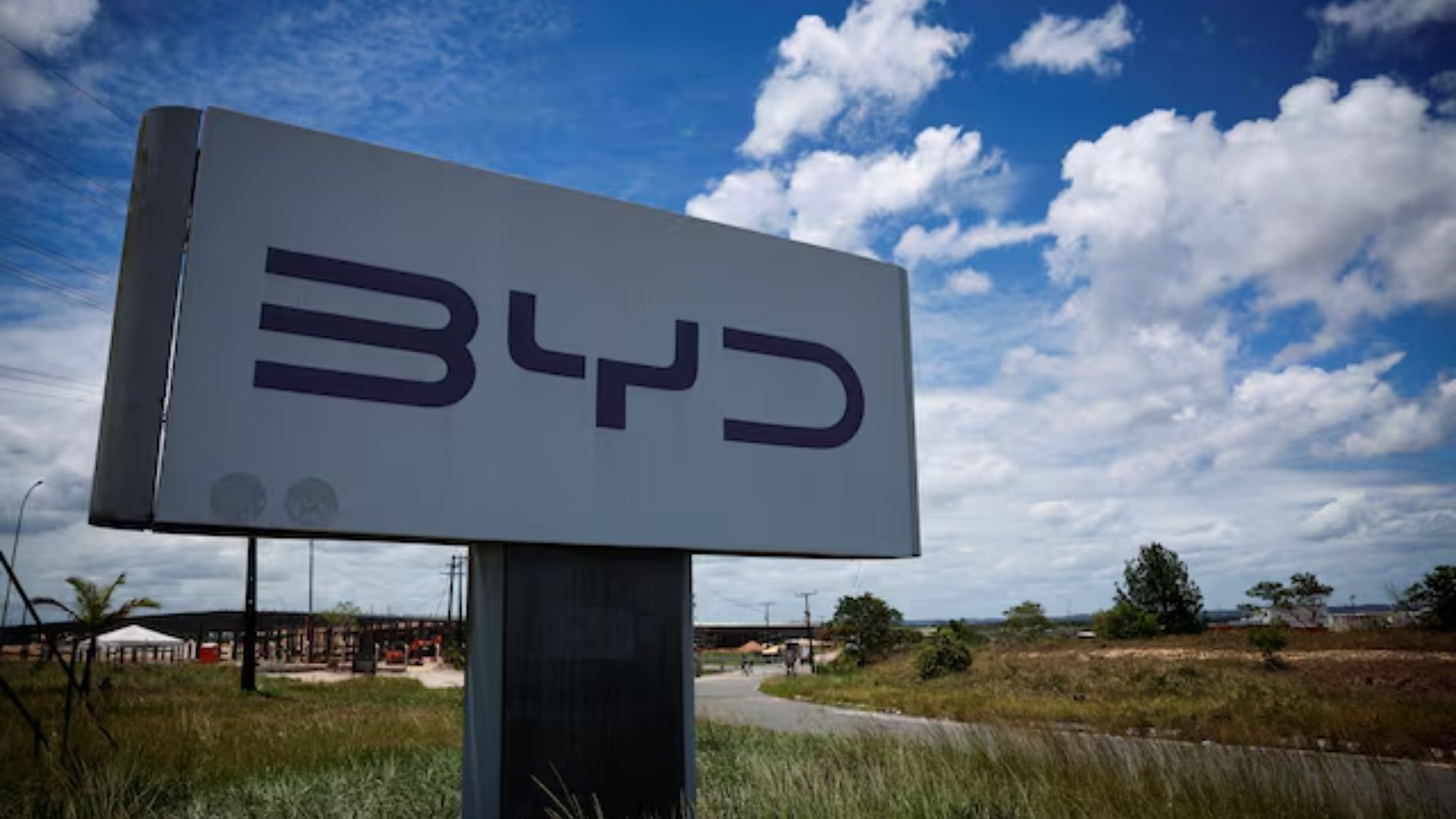Summary
- BYD opens Brazil mining subsidiary, buys rights in two plots in 2023
- Plots next to Atlas Lithium project, half a day from new BYD factory
- Subsidiary in the research phase, with no operating revenues
- Brazil lithium sector draws interest from U.S. and Saudis
RIO DE JANEIRO, (Reuters) – Chinese electric carmaker BYD acquired mineral rights for two plots of land in a lithium-rich part of Brazil in 2023, entering the mining business in its biggest market outside of China, according to public records reviewed by Reuters.
The EV producer’s acquisition of mineral rights in Brazil is its most concrete step so far toward mining strategic minerals in the Western Hemisphere.
The previously unreported acquisition of the mineral rights in late 2023 was made by BYD subsidiary Exploracao Mineral do Brasil, which was created in May of that year, documents showed.
The plots are just a half-day’s drive from BYD’s new factory project in northeast Brazil, which it also agreed to invest in 2023. They also neighbor plots owned by U.S.-listed miner Atlas Lithium.
The subsidiary was created with a share capital of 4 million reais ($695,000) and turned a profit of about 213,000 reais from exchange rate variations in 2023, public registration documents showed.
The company “is in the research phase, with neither financial movement nor operating revenues,” said a report from an October shareholders meeting seen by Reuters.
BYD declined to comment on the matter.
BYD, which bought stakes in major Chinese miners, was one of six firms allowed to bid on a Chilean lithium project last year, and outlined plans for a lithium cathode plant in northern Chile.
Recent visits by U.S., Saudi and Chinese delegations have underscored global interest in Brazil as an open market in the geopolitical race for access to strategic minerals.
Brazil has avoided a heavy state presence in its lithium sector, unlike its South American neighbors, even easing export controls on the metal in 2022.
Its best lithium prospects are hard rock deposits that lend themselves to traditional mining, unlike tricky lithium extraction from salt flats in Argentina, Bolivia and Chile.
BYD’s prospecting for Brazilian lithium reinforces the scale of its bet on Latin America’s largest economy, where the firm’s major investment in a former Ford factory complex was tarnished in December with accusations of labor abuses at the worksite.
Last year, the Financial Times reported that BYD had talks with Sigma Lithium, Brazil’s biggest lithium producer, over a possible supply agreement, joint venture or acquisition.
LITHIUM VALLEY
BYD’s mineral rights cover 852 hectares (8.5 sq km) in the town of Coronel Murta, part of the Jequitinhonha Valley in the state of Minas Gerais known as Brazil’s Lithium Valley.
The neighboring Atlas Lithium project in Coronel Murta is in the research phase after an initial geological mapping of the area, the firm said on its website in June.
Atlas CEO Marc Fogassa said he learned of BYD’s presence through a third party, but never directly discussed it with the carmaker.
“If they invested in these two areas it is because they saw the potential and this obviously makes my areas more valuable,” Fogassa told Reuters.
Coronel Murta is around 825 km (512 miles) away, roughly a 12-hour drive, from the complex on the coast of Bahia state where BYD is developing the factory with capacity to make 150,000 electric cars per year.
BYD has since it acquired the mineral rights, hired Minagem Geologia e Mineracao, a local mineral research firm, public documents show.
Minagem said it would have to seek permission from the BYD subsidiary to speak about the matter.
It can often take between eight and 15 years for a mining project in Brazil to start production if it is deemed economically viable, according to attorney Luiz Fernando Visconti of Visconti Law, a law firm specializing in the mining sector.
($1 = 5.7568 reais)
Reporting by Fabio Teixeira in Rio de Janeiro, additional reporting by Luciana Novaes Magalhaes in Sao Paulo Editing by Brad Haynes and Marguerita Choy











